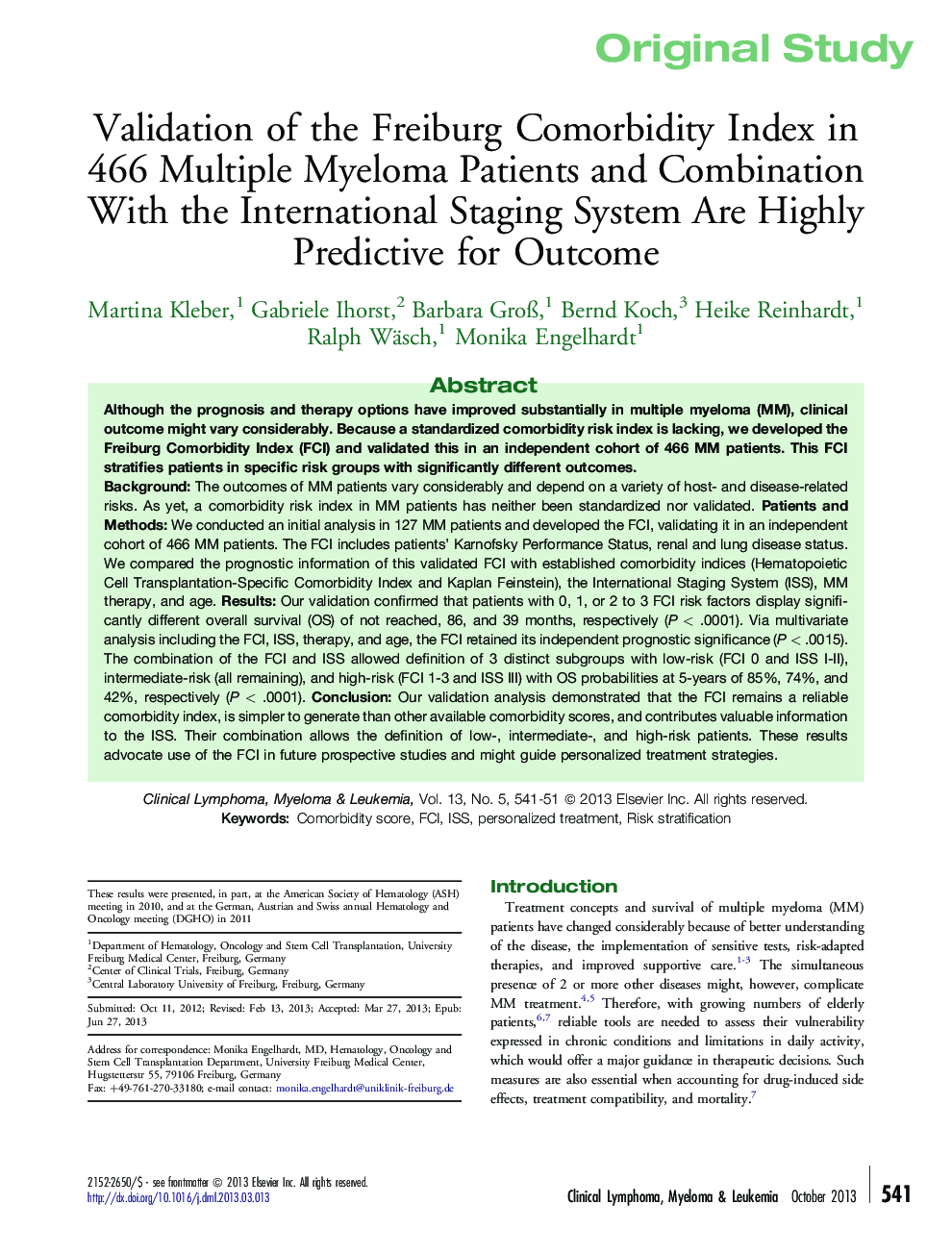| Article ID | Journal | Published Year | Pages | File Type |
|---|---|---|---|---|
| 2754719 | Clinical Lymphoma Myeloma and Leukemia | 2013 | 11 Pages |
BackgroundThe outcomes of MM patients vary considerably and depend on a variety of host- and disease-related risks. As yet, a comorbidity risk index in MM patients has neither been standardized nor validated.Patients and MethodsWe conducted an initial analysis in 127 MM patients and developed the FCI, validating it in an independent cohort of 466 MM patients. The FCI includes patients' Karnofsky Performance Status, renal and lung disease status. We compared the prognostic information of this validated FCI with established comorbidity indices (Hematopoietic Cell Transplantation-Specific Comorbidity Index and Kaplan Feinstein), the International Staging System (ISS), MM therapy, and age.ResultsOur validation confirmed that patients with 0, 1, or 2 to 3 FCI risk factors display significantly different overall survival (OS) of not reached, 86, and 39 months, respectively (P < .0001). Via multivariate analysis including the FCI, ISS, therapy, and age, the FCI retained its independent prognostic significance (P < .0015). The combination of the FCI and ISS allowed definition of 3 distinct subgroups with low-risk (FCI 0 and ISS I-II), intermediate-risk (all remaining), and high-risk (FCI 1-3 and ISS III) with OS probabilities at 5-years of 85%, 74%, and 42%, respectively (P < .0001).ConclusionOur validation analysis demonstrated that the FCI remains a reliable comorbidity index, is simpler to generate than other available comorbidity scores, and contributes valuable information to the ISS. Their combination allows the definition of low-, intermediate-, and high-risk patients. These results advocate use of the FCI in future prospective studies and might guide personalized treatment strategies.
